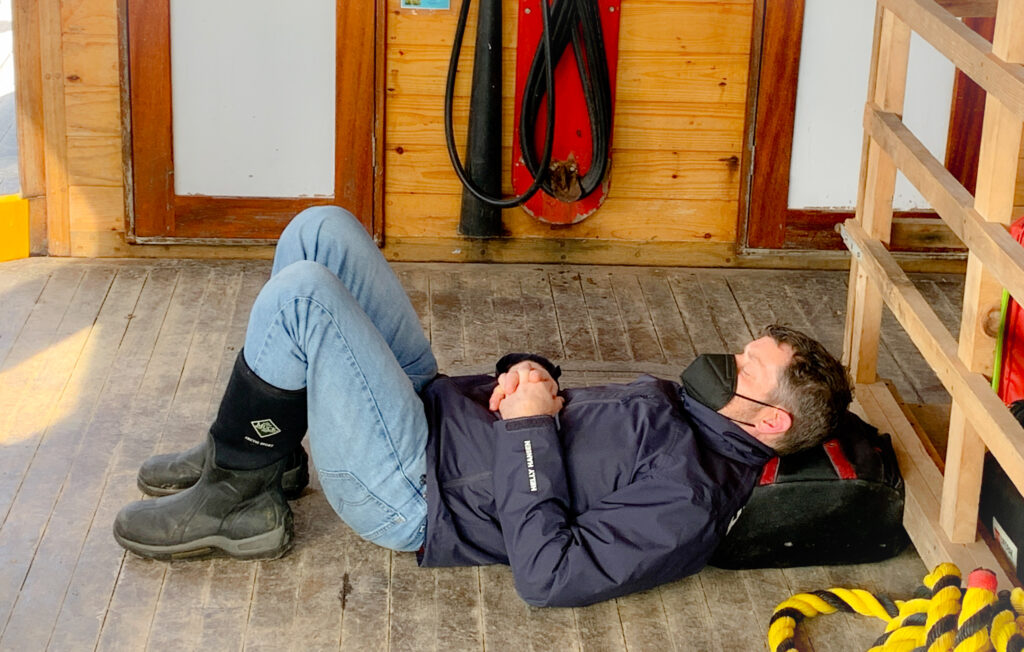From the desk of Douglas Cornman, MA, BC-DMT, Director of Island Outreach
A few years ago, someone dear to my heart, introduced me to a creative way of measuring emotional energy. I had never heard of this particular method for gauging how a person is feeling, but, once I did, it dramatically helped me understand where their emotional barometer was at any given moment. They measured their daily allotment of energy with “spoons” much in the same way a baker measures dry ingredients for a cake. In response to my asking, “How was your day?” They might answer, “Today was rough. It took most of my spoons. I am not in the mood to talk about anything of consequence at the moment.” Conversely, doing something they enjoyed, replenished spoons. “I spent the morning painting,” they once told me. “My drawer is filled with spoons. I’m so glad that I made some time to do that.” Spoons work in both directions. We use them, but we can also get them back. I have my own set of emotional measuring spoons now. I use them to gauge how much energy I have in reserve and how much energy I think I might need to do any given task. Measuring helps me to know when to take a break and when I can keep moving along.

Being, simply put, is the active practice of not doing.
– Douglas Cornman, MA, BC-DMT
I sense that most of us are using a lot of spoons lately. Winter can sap our emotional energy in ordinary times. Facing into cold temperatures, the inability to get outside, and the lack of sunshine use up spoons that we usually need for things like getting along with others or doing the dishes. And as well we know, these are not ordinary times. I am loath to remind us, that March marks the beginning of our third year living with COVID-19. Remember back at the beginning, when we said that the pandemic would be a marathon and not a sprint. How about a double marathon, or even a triple? Continued social distancing, mask wearing, not hugging our friends, and never-ending Zooming gatherings often require our full set of spoons and then some, leaving us wondering where we are going to find the spoons needed to get us through the everyday grind.
Last week, I met with Dr. Dan Johnson, a clinical psychologist, with whom I chat on a regular basis. Dan is an advocate for using mindfulness and meditation practices as effective ways of adding spoons to one’s collection. He mentioned the concepts of “doing” and “being” during our talk. Doing is just like it sounds. It is the act of completing a task. Doing is essential to functioning because it gets things done. We fundamentally know that we don’t function as our best selves unless we accomplish things, like attending to work or our families. We often feel better once we tick a few things off our to-do lists. Being, simply put, is the active practice of not doing. Being is spending time with our body, mind, and spirit. It is sitting with one or more aspects of ourselves and remaining present with wherever we are, at that moment in time. Being is equally essential to functioning because it allows space for clarity, which, in turn, provides us an opportunity to adjust how we behave and interact with everything around us. For better or worse, most of us are better at doing than being. Being can sometimes be seen as frivolous. It can also be scary. Given time, however, the practice of being does evolve and our feelings change. It is possible to become companions with our fears, and also ourselves. I am in no way saying that it is an easy practice. Neither am I saying that it will always be a comfortable practice. All I am saying is that it is possible.
If, like many of us, you seem to be lacking enough spoons to make it through your day without feeling completely exhausted, try spending a small portion of it just “being.” Find a comfortable place to sit, stand, or lay down (I like sitting in the sun if its shining) and breathe. Really, that is all you have to do – just sit and breathe. Try not to think about what you are making for dinner or the Zoom call you have later in the day – just sit and breathe. Focus your attention on your breath or a bird chirping or the sound of the breeze, if you cannot clear your mind of racing thoughts. Sit and breathe. Try not to force clarity and peace and replenishing your spoon drawer. If your practice is anything like mine, those things will come in their own time. All you need to do is sit and breathe. Peace and love, my friends. May your drawer always hold enough spoons to get you through your day.
To learn more about Douglas Cornman and his programmatic work, please visit the Mission’s Island Outreach program.
